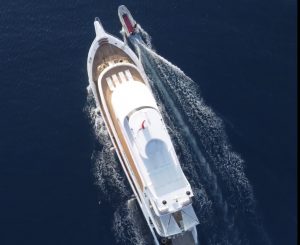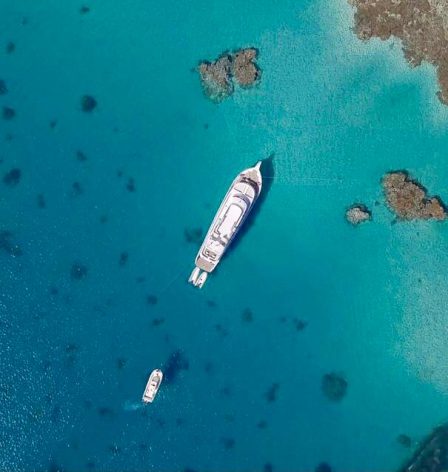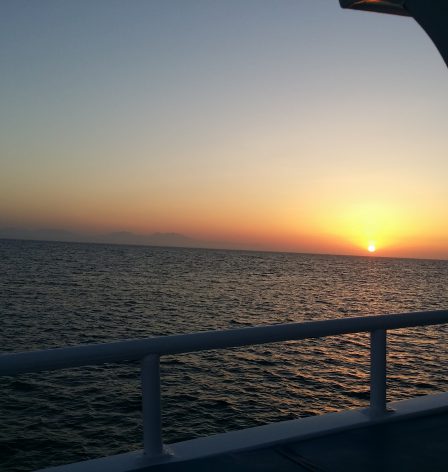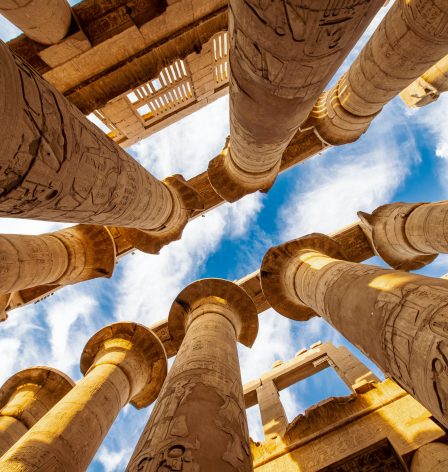We are dedicated and all yours to make your adventures in Egypt as pleasant and memorable as possible.
Please have a sneak peek on this site to get to know us a little better. We like what we do and it shows every day. Our goal is your satisfaction. We let our service do the talking.
Why choose this route?
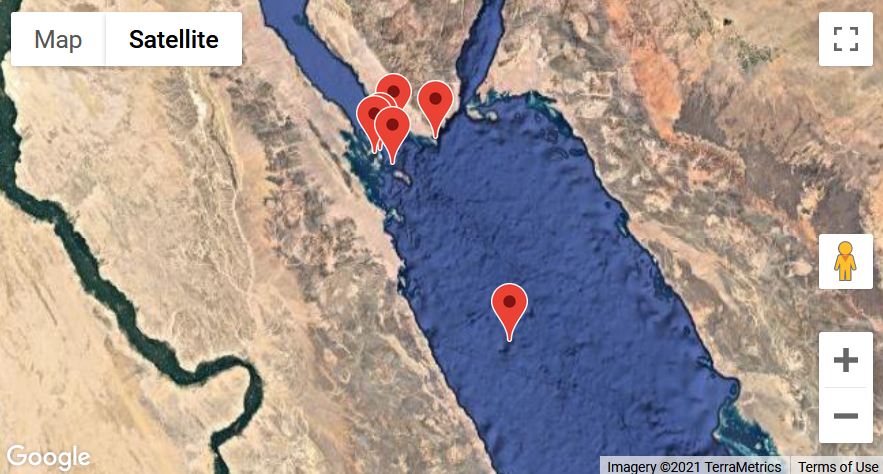
Daedalus Reef /Zabargad/Rocky Adventure
This trip features the reefs of Daedalus, Elphinstone and St John’s, combined with the Zabargad and Rocky Islands. This one tops the bill of our liveaboard menu.
Sea beds drop to 15-20 meters, depending on the site, where dozens of slender coral towers can be observed. You will see great corals, shaped like giant umbrellas and cupolas. It’s where many tropical groupers roam. At night octopus, crinoids, crustaceans and nudibranchs ‘wander’ through innumerable coral grottoes and corridors. With a little bit of luck, it is possible to spot pelagic species such as blacktail sharks, eagle rays, manta rays, barracuda and tuna fish. Watch out for Sohal surgeonfish, butterflyfish, triggerfish, moray eel, manta rays and gigantic humpback wrasse.
Daedalus Reef
Daedalus, also known as Abu Kizan, is a preserved marine park. It’s isolated and remote and respected for its strong currents. Therefore, diving the Daedalus is a challenge. You certainly won’t be disappointed by the fantastic display of fire corals, brain corals, leafy corals, raspberry corals and spiny row corals. One can descend to depths of 30 meters.
Daedalus attracts pelagic passages from barracuda, dogtooth tuna, jacks, sea turtles, black tip reef sharks, oceanic white tip sharks, hammerheads and grey tip reef sharks.
Daedalus is the residence of the clownfish, living in symbiosis with anemones. It is also a stomping ground for twin spot snappers, blue cheeked butterflyfish, schools of surgeonfish, fusiliers, bigeye trevallies, moray eels, manta rays and the majestic napoleon wrasse.
Zabargad Island
Zabargad takes its name from the mineral olivine gem, once mined on the island. It’s location is southeast of Port Berenice. Wall drops here to 15 to 20 meters. The seabed is equipped with coral towers and pinnacles. The floral landscape is formed by innumerable species of corals, such as the staghorn coral, the honeycomb, the flowerpot and tapestries of sienna brown tubular sponges.
Zabargad Island’s claim to fame is its labyrinthine panorama of coral canyons,, grottoes and corridors. They have been created by interlinking pinnacles and pillars, forming punctured rooftops. Those punctures ‘filter’ sun rays, penetrating through crevices and cracks, turning Zabargad into a poetic affair.
Rocky Island
Rocky Island is a small island, twenty minutes cruising from Zabargad and a pelagic haven, featuring a great variety of sharks, manta rays, countless groupers, jacks and barracudas.
Its walls are tumbling down to more than 100 meters. They show tapestries of sea fans, gorgonians, mountain corals, black coral trees and staghorn corals. It’s sheer fascinating seeing the waving gorgonians, subject to the current’s rhythm,.
Rocky Island is exposed to the sea and the elements, attracting a fabulous range of silver tips, and hammerhead sharks. It gave rise to the sobriquet ‘shark theatre’.
Unlimited visibility adds to the fish tank feel and fascinating marine life, featuring Red Sea bannerfish, the clearfin lionfish, the zebra angelfish, blackspotted sweetlips, the rusty parrotfish and the devil scorpionfish.
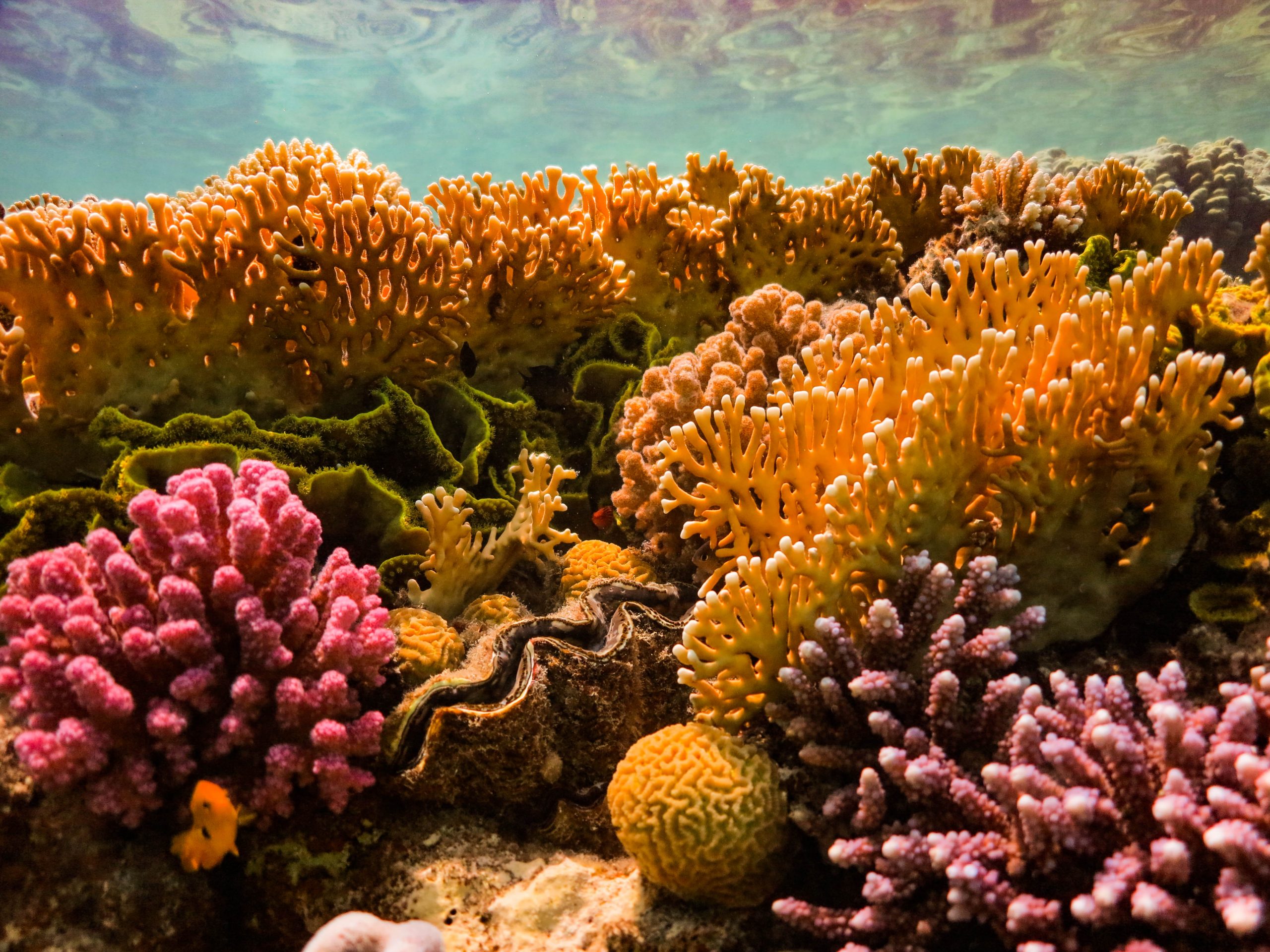
Shaab Marsa Alam
Shaab Marsa Alam is an offshore reef formation. There’s a steep colourful wall decorated with soft coral. The odd moray eel may be spotted here. The west side is covered with a large coral garden. Depth up to 30 meters. The southern part of the reef is home to tall rising pinnacles. Sometimes small spinner dolphins swim by here.
Aquatic Panorama
- Table coral
- Gorgonians
- Blackspotted grunts
- Barracuda
- Napoleon fish
- Clownfish

Sha’ab Abu Dabbab/ Six Islands
30 kilometers cruising ; north of Marsa Alam. Easy site. Mild current. Relatively shallow. Maximum depth 18 meters deep. Holy grail for videographers and photographers. Dugongs present. Features reefs, pinnacles, caves and tunnels.
Residence of the intriguing guitar shark.
Aquatic Panorama
- Mushroom coral
- Fire coral
- Pachyseris
- Black surgeonfish
- Lined butterflyfish
- Masked pufferfish
- Nudibranch
- Bluepsotted stingray
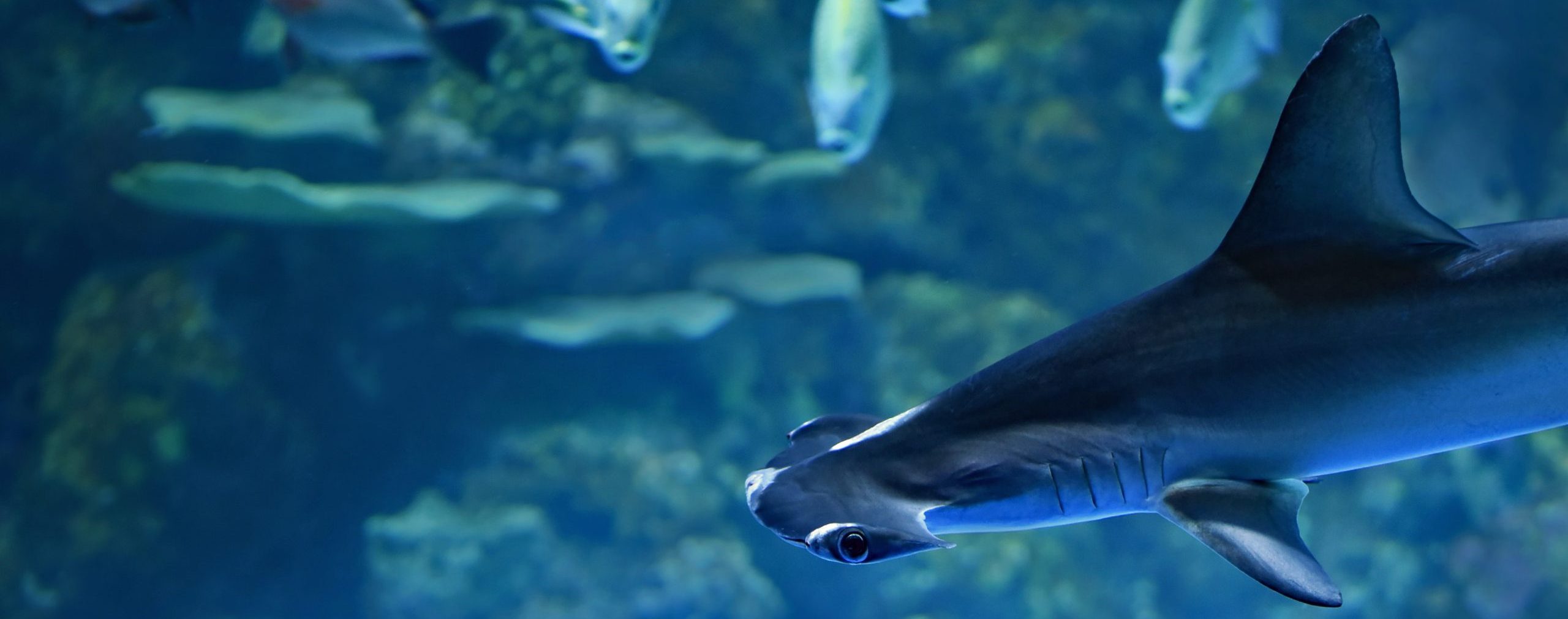
Daedalus Reef
Daedalus, also known as Abu Kizan, is a preserved marine park. It’s isolated and remote and respected for its strong currents. Therefore, diving the Daedalus is a challenge. You certainly won’t be disappointed by the fantastic display of fire corals, brain corals, leafy corals, raspberry corals and spiny row corals. One can descend to depths of 30 meters.
Daedalus attracts pelagic passages from barracuda, dogtooth tuna, jacks, sea turtles, black tip reef sharks, oceanic white tip sharks, hammerheads and grey tip reef sharks.
Daedalus is the residence of the clownfish, living in symbiosis with anemones. It is also a stomping ground for twin spot snappers, blue cheeked butterflyfish, schools of surgeonfish, fusiliers, bigeye trevallies, moray eels, manta rays and the majestic napoleon wrasse.
Aquatic Panorama
- Spiny row corals
- Leafy corals
- Raspberry corals
- Sohel surgeonfish
- Blue cheeked butterflyfish
- Twinspot snappers
- Fusiliers
- Spanish dancers
- Sharks
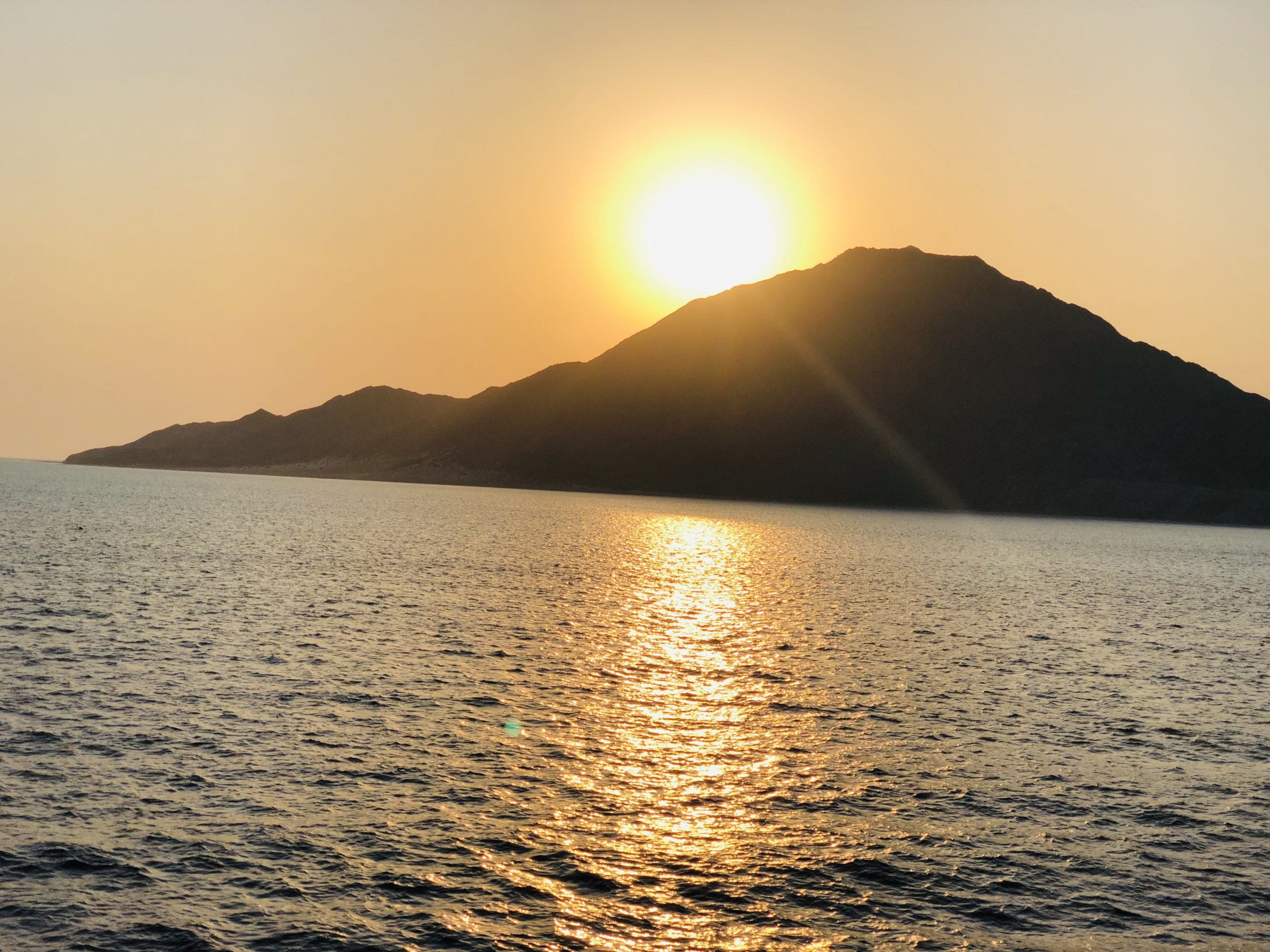
Zabargad Island
Zabargad takes its name from the mineral olivine gem, once mined on the island. It’s location is southeast of Port Berenice. Wall drops here to 15 to 20 meters. The seabed is equipped with coral towers and pinnacles. The floral landscape is formed by innumerable species of corals, such as the staghorn coral, the honeycomb, the flowerpot and tapestries of sienna brown tubular sponges.
Zabargad Island’s claim to fame is its labyrinthine panorama of coral canyons,, grottoes and corridors. They have been created by interlinking pinnacles and pillars, forming punctured rooftops. Those punctures ‘filter’ sun rays, penetrating through crevices and cracks, turning Zabargad into a poetic affair.
Aquatic Panorama
- Tubular sponges
- Staghorn corals
- Coral grottoes
- Pinnacles
- Grouper
- Royal angelfish
- Orbicular burrfish
- Sabre squirrelfish
- Octopus
- Hawksbill turtle
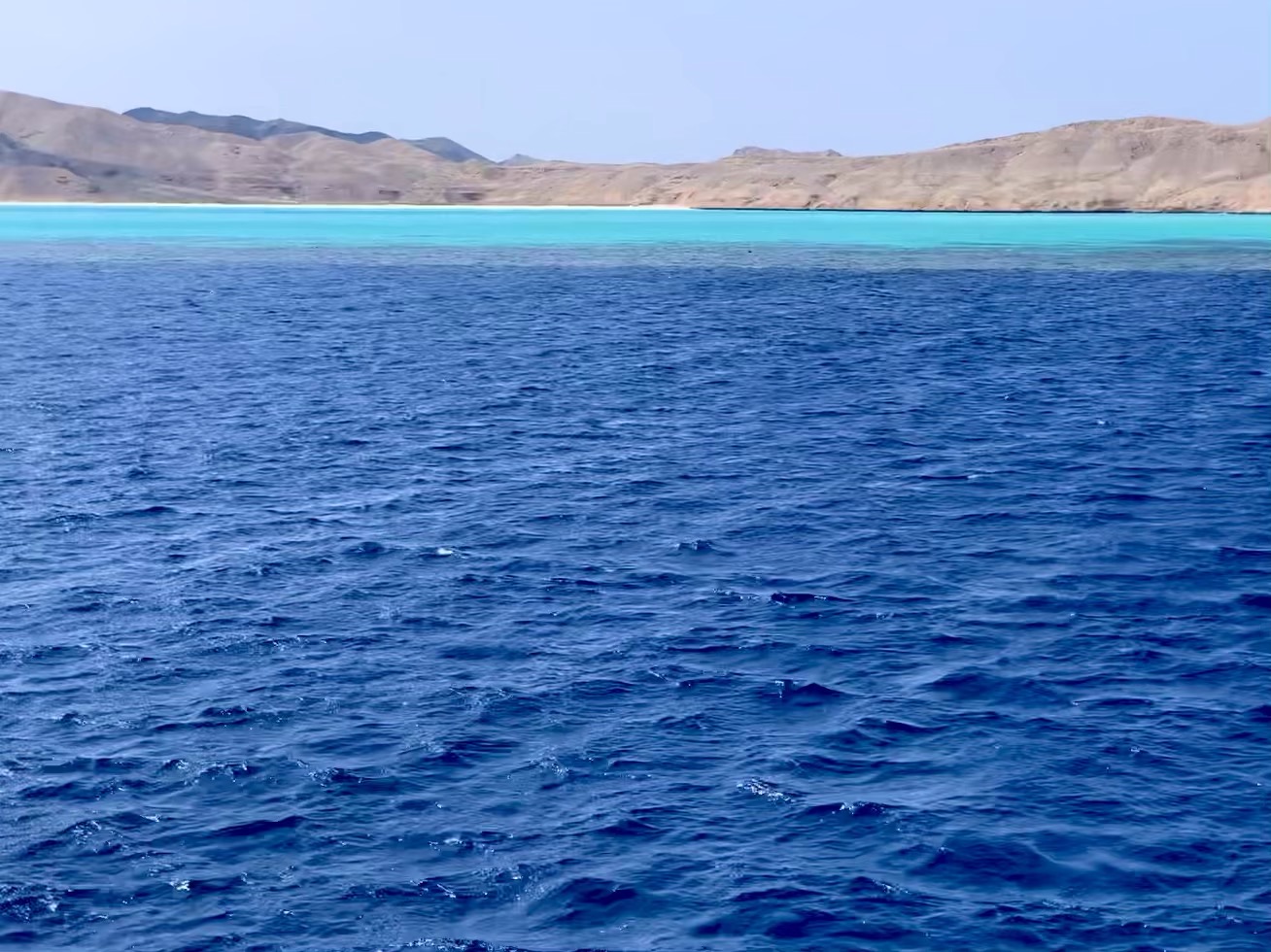
Rocky Island
Rocky Island is a small island, twenty minutes cruising from Zabargad and a pelagic haven, featuring a great variety of sharks, such as tigers, white tips, silvertips and hammerheads, manta rays, countless groupers, jacks and barracudas.
Its walls are tumbling down to more than 100 meters. They show tapestries of sea fans, gorgonians, mountain corals, black coral trees and staghorn corals. It’s sheer fascinating seeing the waving gorgonians, subject to the current’s rhythm,.
Rocky Island is exposed to the sea and the elements, attracting a fabulous range of silver tips, and hammerhead sharks. It gave rise to the sobriquet ‘shark theatre’.
Unlimited visibility adds to the fish tank feel and fascinating marine life, featuring Red Sea bannerfish, the clearfin lionfish, the zebra angelfish, blackspotted sweetlips, the rusty parrotfish and the devil scorpionfish.
Aquatic Panorama
- Staghorn corals
- Mountain corals
- Gorgonians
- Tubular sponges
- Ruste parrotfish
- Bi-colour wrase
- Zebra angelfish
- Hammerhead sharks
- Spanish dancers
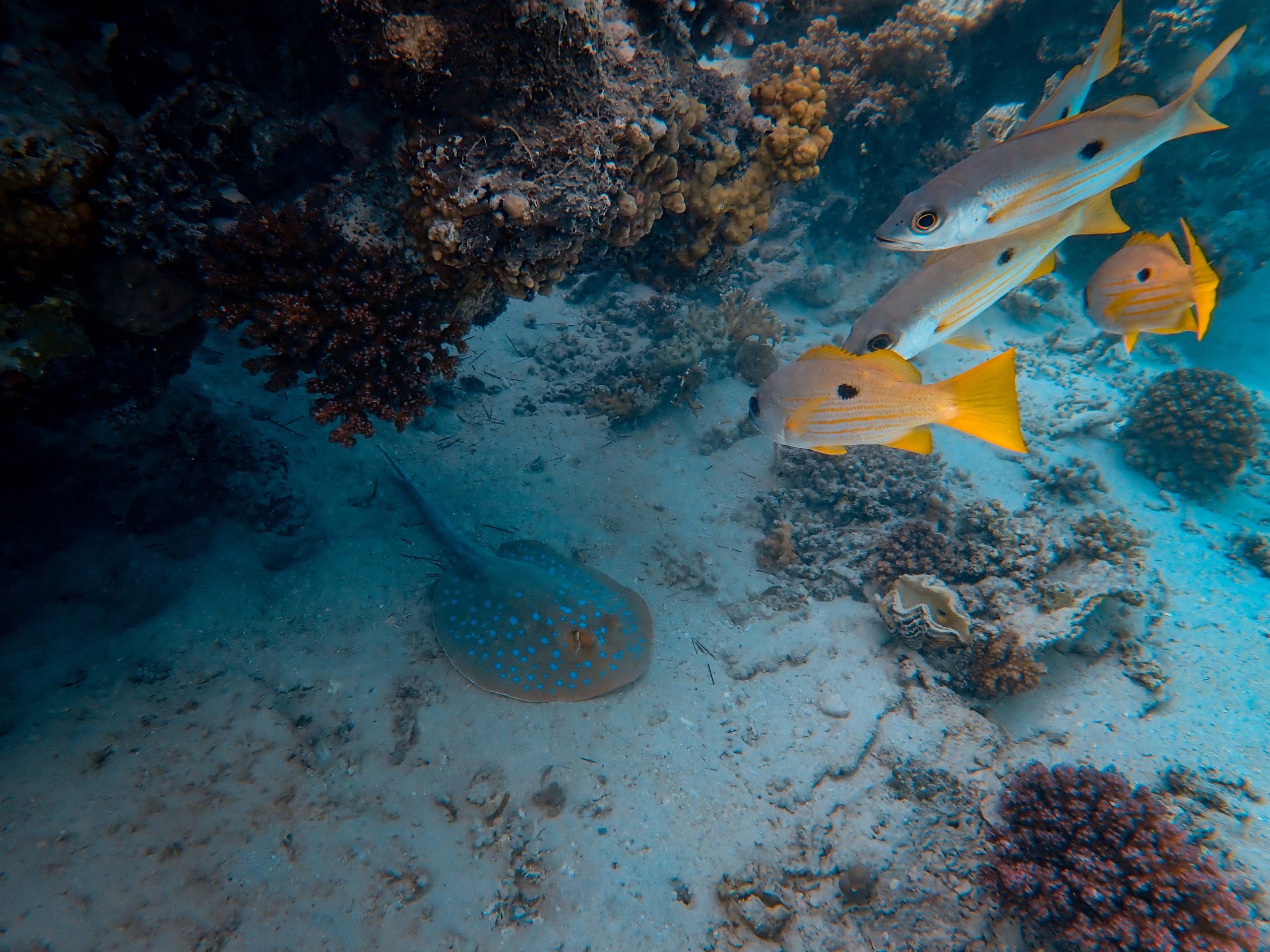
Om Halhalla
20 minutes cruising from Abu Dabbab Bay.
Excellent visibility. Medium current. Drifting conditions. Depth up to 17 meters. Photogenic.
Aquatic Panorama
- Port coral
- Mushroom coral
- Leather coral
- Devil scorpionfish
- Cheeklined wrasse
- Giant moray
- Hawksbill turtle
- Black tip reef shark




